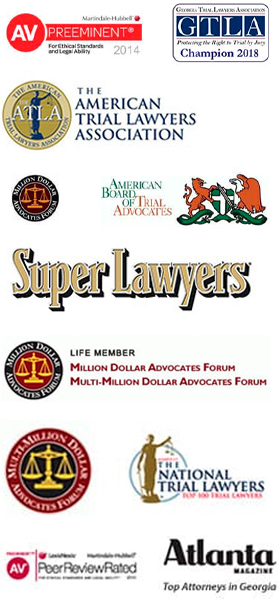A Property Owner or Occupier’s Duty of Care
The State of Georgia legally mandates that property owners or occupiers who invite others to their property for a lawful purpose must ensure that their premises are in reasonably safe condition (O.C.G.A. § 51-3-1). This legal mandate means that businesses and property owners have a duty to safeguard their guests against all types of safety hazards, including potential criminal attacks.
Georgia allows crime victims to pursue premises liability claims against property owners and businesses for third-party criminal attacks that occur on their property — should negligent security have played a role in the circumstances that presented an opportunity for the crime to occur.
Key to proving these cases is establishing something called reasonable foreseeability.
Understanding Foreseeability in Negligence
Foreseeability does not mean property owners or occupiers are expected to have a crystal ball, nor that they had some advanced knowledge of the crime that would take place. However, when certain unsafe conditions exist on or around their premises, the property owner can be presumed to have reasonably foreseen the possibility of danger and the need to improve security.
In cases of negligent security, a property owner’s actions (or inactions) can create a foreseeable zone of risk that made a violent crime and injury of an innocent invitee more likely to occur.
What makes negligent security cases so complex is not all businesses are held to the same standard of reasonably foreseeable due to a variety of factors such as location, prior criminal acts, and the nature of the business.
Foreseeability Due to Nature of the Business
Sometimes, the issue of foreseeability can stem from the nature of the business itself and any higher-risk activities that happen on the premises. These types of higher-risk businesses have a duty to ensure the safety and security of their patrons with increased security measures.
For example, owners/operators of an ATM site can reasonably foresee dangerous potential for robberies late-at-night, requiring the need for measures like increased lighting or the presence of security guards.
Foreseeability Based on Location & Prior Criminal Acts Nearby
Other times, foreseeability is based on prior “substantially similar” crimes, either at that location or in the nearby vicinity.
Property owners or occupiers are expected to have a basic idea of the crime risk in their area, and to take additional safety and security measures if necessary to protect their patrons and guests should they be in a location with a high crime rate. Should they fail to initiate adequate security measures to deter criminal activity and, as a result, a violent assault occurs leading to a serious injury, the business or property owners could be held liable.
Similarly, if a nightclub has repeated problems with violence by patrons, as evidenced by numerous calls to police or arrests, there may be a strong argument in a subsequent injury case that security was inadequate.
Foreseeability as a Test for Proximate Cause
In civil personal injury lawsuits filed against a third party owner or occupier who did not directly inflict the injury, foreseeability acts as a litmus test for whether that third party can be held liable for the injury that occurred. This indirect causation of the injury is referred to as the Proximate Cause.
For proximate (indirect) cause of the injury to be determined, the injured plaintiff must prove:
- The third party owner or occupier had a duty to safeguard the plaintiff
- The third party owner or occupier was or should have been aware of the unsafe conditions that made the injury foreseeable
- The injury was indirectly caused by the unsafe conditions
Further Reading: Understanding Proximate Cause in Negligence & Personal Injury
Example Cases of Foreseeability in Negligent Security
The following are just some examples where Georgia courts have found crimes to be foreseeable by property owners, resulting in substantial damages being awarded:
Good Ol’ Days Downtown, Inc. v. Yancey
In the 1993 case of Good Ol’ Days Downtown, Inc. v. Yancey the court deemed a restaurant legally responsible for injuries sustained by one patron who was assaulted by another. The assault was foreseeable, the court held, because it involved a volatile situation wherein the aggressor screamed at the victim for five minutes – loudly – before the argument became physical.
Piggly Wiggly Southern, Inc. v. Snowden
In the 1995 case of Piggly Wiggly Southern, Inc. v. Snowden the Georgia Court of Appeals upheld a verdict siding with a victim who was stabbed, beaten, robbed, kidnapped, and sexually assaulted in the grocery store’s unlit parking lot. In this case, the court ruled, after learning of evidence of dozens of purse snatchings and frequent loiterers who harassed and threatened customers, there was sufficient foreseeable danger to the store’s patrons and need for increased security measures that the store did not act upon. The store was ordered to pay $800,000 to the victim.
Martin v. Six Flags Over Georgia
In the 2007 case of Martin v. Six Flags Over Georgia the jury awarded $35 million to a man who was attacked and brutally beaten by gang members at a bus stop just outside the park. The victim suffered permanent brain damage amongst other injuries. After learning of evidence of frequent gang activity at the park and members of the park’s security team had previously recommended that additional security be placed at the same bus stop, the trial court found Six Flags Over Georgia liable for breaching its duty to safeguard its patrons against foreseeable dangers.



